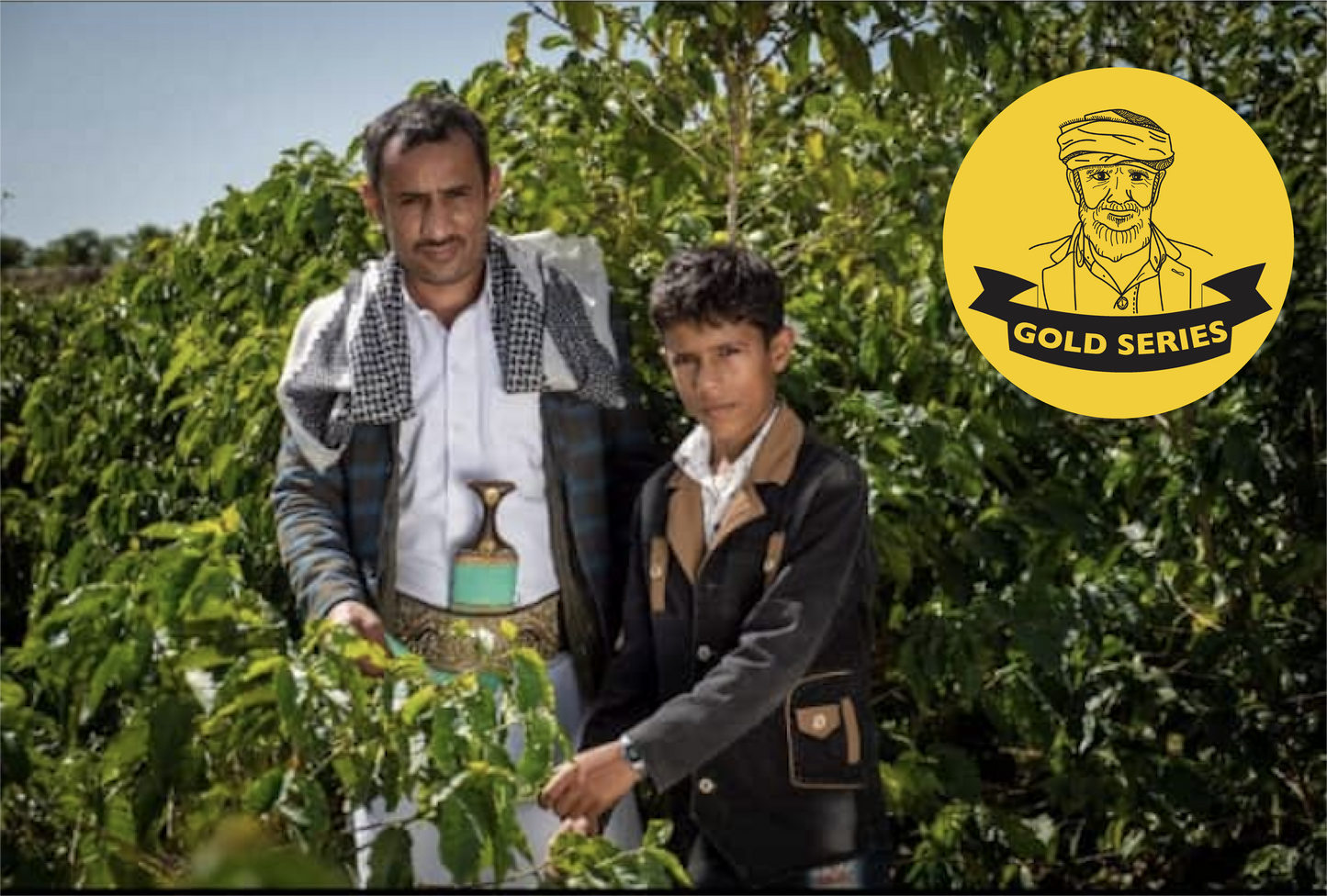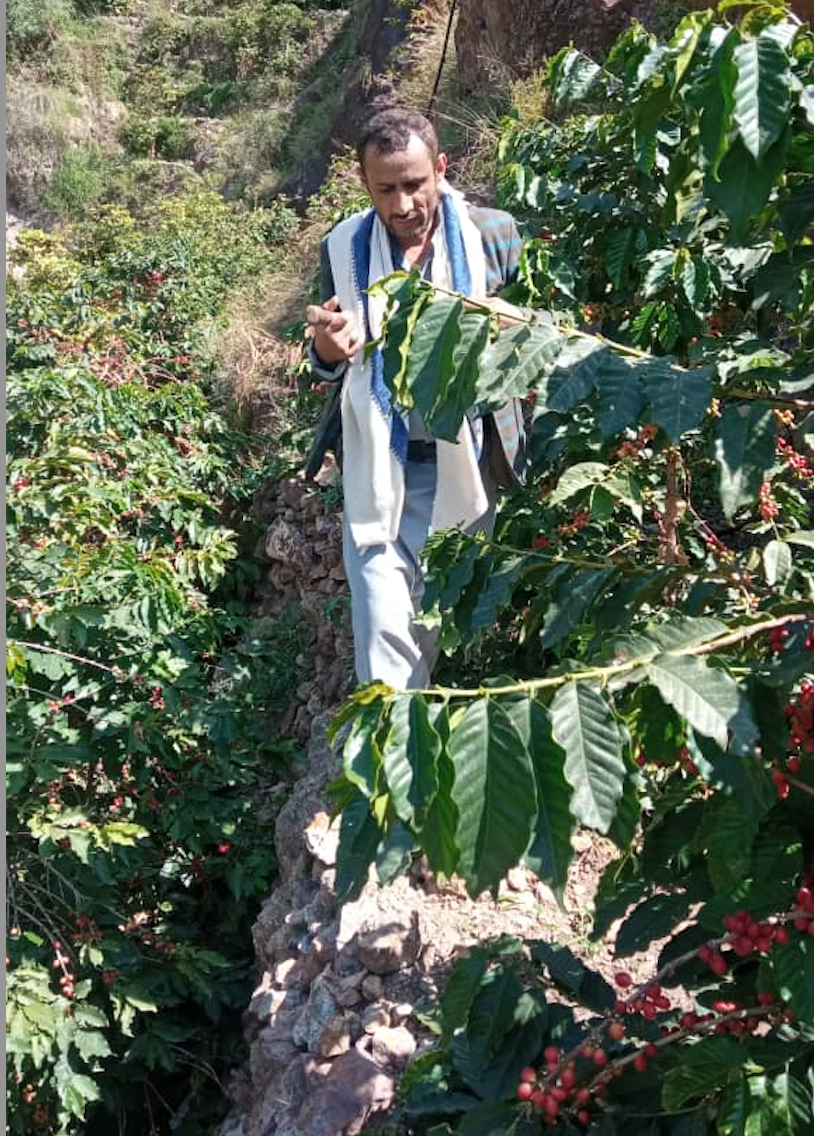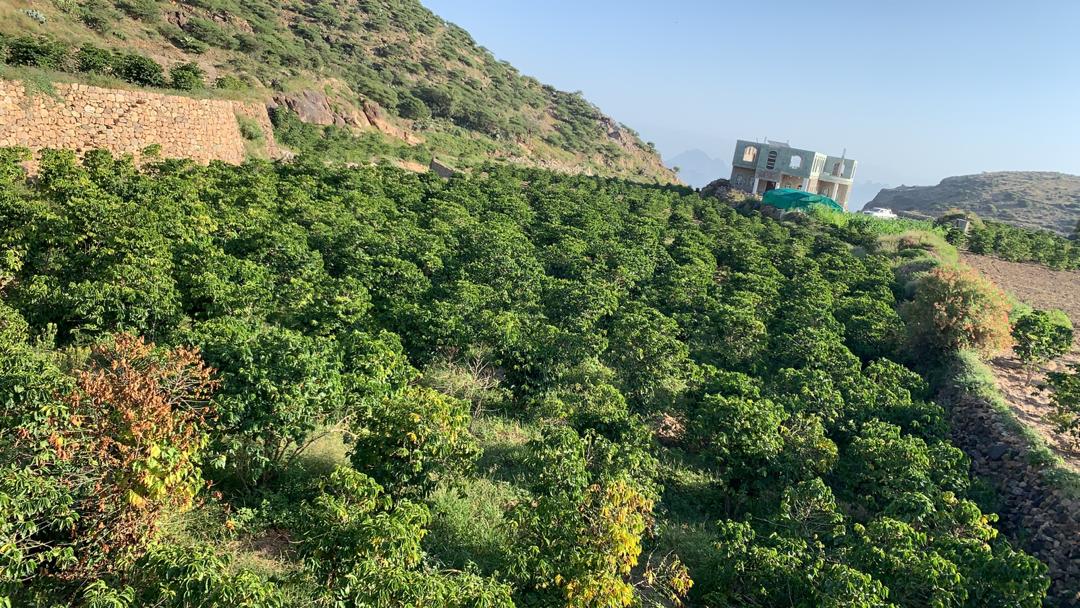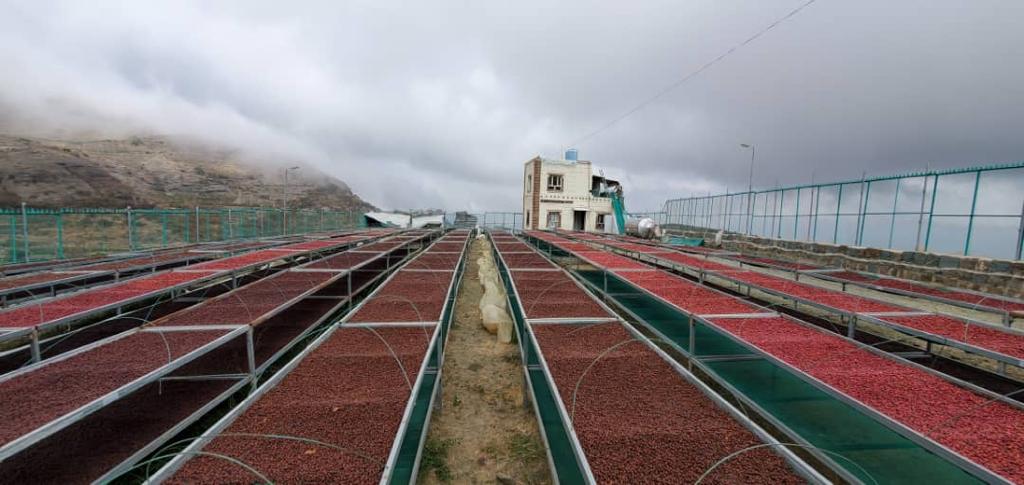이 사이트는 hCaptcha에 의해 보호되며, hCaptcha의 개인 정보 보호 정책 과 서비스 약관 이 적용됩니다.
Flavor Notes:
Strawberry, Raisin, Orange, Plum, Bright, Good Acidity, Sweet finish
Type: Single Farmer Nano Lot
Producer: Mohammed Awadh Sham
Origin: Jarma Village, East-Haraz Area, Manakha, Sana’a, Yemen
Processing: Open Barrel Fermentation 96 hours, Natural Sun-dry
Variety: Dawairi, Jaadi, Old Typica
Altitude: 1700-2000 m
Haraz is located in the highlands of northwestern Yemen, at elevations up to 2,400 meters above sea level, and is a cold region. The area around Harraz has rich volcanic soil. Generally speaking, Harraz coffee has raisiny, fruity acidity, smooth body, and chocolate-like after-flavor, and is famous as a region that produces some of the best coffees in Yemen. The main coffee cultivars in Haraz are the Jaadi and Dawairi Cultivar in the Ancient Typica Mother Population.
Mohammed Awadh Sham is a determined farmer who lives in Jarma village Haraaz in Yemen. His passion for farming runs deep, inherited from generations of skilled farmers in his family. Mohammed's farm, nestled amidst rolling hills and fertile valleys, is a testament to his hard work and dedication.
On his farm, Mohammed cultivates a variety of crops typical to the region, including wheat, and pomegranates. However, it's his expertise in growing Coffee that makes him stand out. The coffee ended up to be a very successful crop with complex flavors.
Despite the challenges posed by changing weather patterns and market fluctuations, Mohammed remains resilient. He adopts sustainable farming practices, such as water conservation techniques and organic fertilizers, to ensure the long-term health of his crops and land.
Mohammed is not alone in his endeavors. His wife, and their three children actively participate in farm activities, from tending to the fields to packaging the harvest for sale. Together, they embody the spirit of unity and hard work that defines the Jarma farming community.




